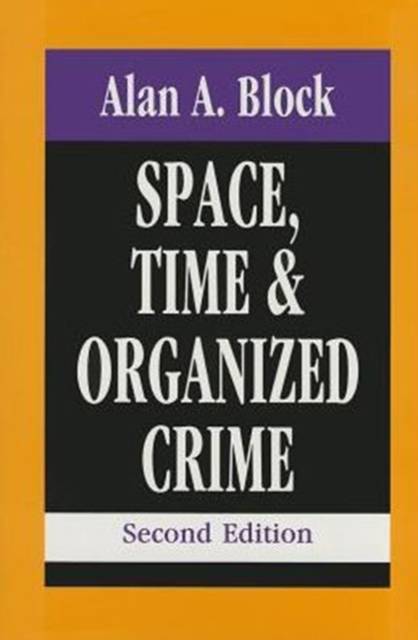
- Afhalen na 1 uur in een winkel met voorraad
- Gratis thuislevering in België vanaf € 30
- Ruim aanbod met 7 miljoen producten
- Afhalen na 1 uur in een winkel met voorraad
- Gratis thuislevering in België vanaf € 30
- Ruim aanbod met 7 miljoen producten
Zoeken
Omschrijving
Most research on organized crime reveals only a limited sense of its history. Our understanding suffers as a result. Space, Time, and Organized Crime shows how arguments about the sources, consequences, and extent of crime are distorted as a consequence of crude empiricism. Originally published in Europe in 1991 as Perspectives on Organizing Crime, this book is a timely blend of history, criticism, and research. Fully one-fourth of this new edition contains hitherto unpublished materials especially relevant to the American experience.Space, Time, and Organized Crime describes the background of Progressive Era New York. It then broadens its scope by exploring the changes in drug production and distribution in Europe from about 1925 to the mid-1930s. Block addresses such little explored issues as the ethnicity of traders, the structure of drug syndicates, and the impact of legislation that attempted to criminalize increasing aspects of the world's narcotic industry prior to the Second World War. He then goes on to present organized crime's involvement with transnational political movements, intelligence services, and political murders. Space, Time, and Organized Crime concentrates on ambiguities evident in organized crime control, such as the U.S. Internal Revenue Service's protection of criminal off-shore financial interests, and the contradictions found in America's war on drugs.Space, Time, and Organized Crime demonstrates that the essential nature of crime in the twentieth century (regardless of where it takes place) cannot be understood without sound historical studies and a more sophisticated criminological approach. Block's unique blend of stratification in a historical context will be of special interest to historians, sociologists, criminologists, and penologist.
Specificaties
Betrokkenen
- Auteur(s):
- Uitgeverij:
Inhoud
- Aantal bladzijden:
- 476
- Taal:
- Engels
Eigenschappen
- Productcode (EAN):
- 9781560001041
- Verschijningsdatum:
- 30/01/1994
- Uitvoering:
- Hardcover
- Formaat:
- Genaaid
- Afmetingen:
- 157 mm x 236 mm
- Gewicht:
- 793 g

Alleen bij Standaard Boekhandel
+ 181 punten op je klantenkaart van Standaard Boekhandel
Beoordelingen
We publiceren alleen reviews die voldoen aan de voorwaarden voor reviews. Bekijk onze voorwaarden voor reviews.











